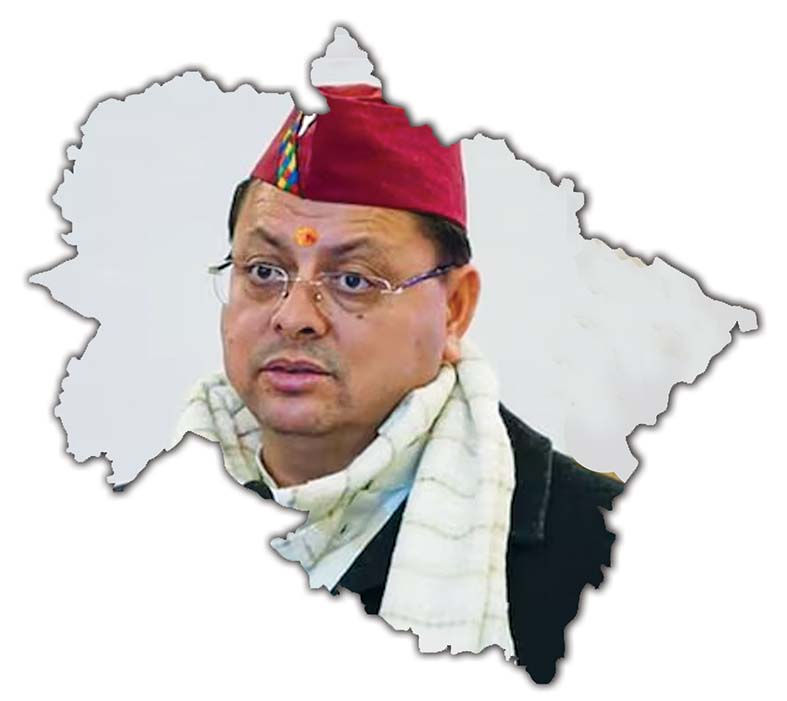A Bold Step
- Correspondent
- Jan 29
- 3 min read
Updated: Jan 30
Despite opposition from predictable quarters, the state has taken a necessary step towards legal equality.

Uttarakhand has etched its name into the annals of legal history by becoming the first Indian state to implement the Uniform Civil Code (UCC). The state’s Chief Minister, Pushkar Singh Dhami, inaugurated the UCC rules manual and an online portal facilitating applications under the new legal framework. The move, long a subject of political contention, is a significant step towards ensuring legal uniformity across communities in matters of marriage, divorce, inheritance and live-in relationships. Expectedly, opposition has poured in from the Congress and certain Muslim organisations. That said, the government’s resolve in pushing ahead is commendable.
The move, which comes after decades of political hesitancy at the national level, represents a decisive moment in India’s legal evolution. The implementation of the UCC in Uttarakhand was not an overnight decision. It followed months of preparation, including the establishment of a five-member expert committee headed by retired Supreme Court judge Ranjana Prakash Desai.
The committee, tasked with drafting a comprehensive framework for the legislation, submitted its findings in October 2023. The bill was subsequently passed by the Uttarakhand Assembly on February 7, 2024, and received Presidential assent on March 12, 2024.
At its core, the UCC seeks to replace the current patchwork of religious personal laws with a uniform legal framework. While marriage and divorce laws in India have long been governed by religious statutes - the Hindu Marriage Act, the Muslim Personal Law, the Christian Marriage Act, among others - the new legislation mandates a common standard. It stipulates that marriages must be registered to have legal validity, a move that is expected to curb issues like bigamy and child marriage. The code also standardises the rules on testamentary succession, enabling citizens to register and modify wills digitally. In another progressive step, live-in relationships will require formal registration, with provisions ensuring that both partners acknowledge termination to prevent unilateral abandonment.
The state government has put in place an extensive digital infrastructure to facilitate compliance with the new law. An Aadhaar-based verification system, AI-driven translation services in 22 languages, and cloud-based data integration across multiple departments will make UCC implementation more seamless than previous reforms in personal law.
Chief Minister Dhami has positioned the UCC as a step towards gender equality and social justice. In his inaugural speech, he highlighted how the new law would empower women by ending discriminatory practices such as polygamy, halala and triple talaq - issues that have often sparked controversy in India’s legal and political landscape. Importantly, the law exempts Scheduled Tribes (STs), ensuring that their distinct customs remain protected, an approach that aligns with Article 342 of the Constitution.
Predictably, opposition parties and religious groups have condemned the move. The Congress calls it a political ploy, while the Jamiat Ulema-e-Hind plans to challenge it in court, citing religious freedom. Yet Article 44 of the Constitution explicitly recommends a Uniform Civil Code, and the Supreme Court has repeatedly endorsed legal uniformity in personal laws.
For decades, successive governments have shied away from implementing a common civil code, fearing electoral backlash. The spectre of 1986, when the Rajiv Gandhi government overturned the Supreme Court’s judgment in the Shah Bano case under pressure from conservative Muslim groups, still looms large. However, attitudes towards personal law reforms have evolved. The abrogation of Article 370 in 2019 and the Supreme Court’s 2017 ruling on triple talaq signalled a shift in the legal landscape, demonstrating that political will can prevail over religious conservatism when the larger objective is legal parity.
Uttarakhand’s initiative is a welcome step, but its success will depend on its execution. The state has set a precedent, but the real test will be how efficiently the system functions in practice.
If the Uttarakhand model proves successful, it could serve as a blueprint for broader legal unification, fulfilling a constitutional aspiration that has remained unfulfilled for over seven decades.




Commentaires